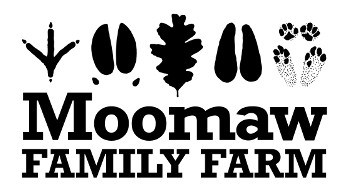
Pastured Sheep
Our sheep are entirely grass-fed from start to finish.
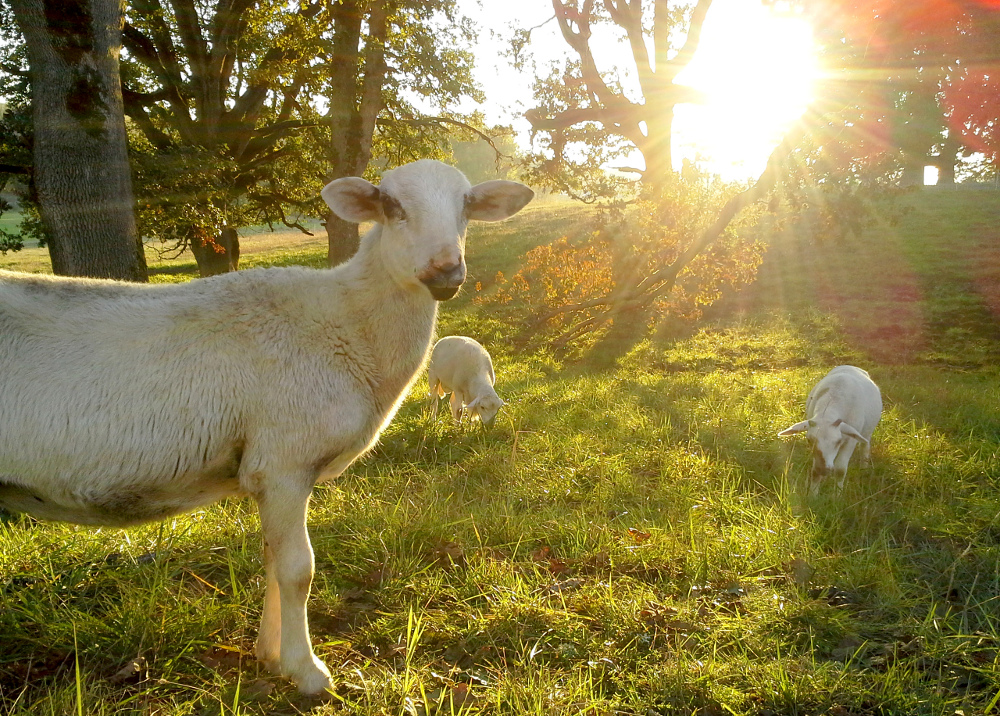
Pastured Sheep

Pastured Sheep
The breed of sheep we raise are Katahdin, which do not need to be shorn for wool, because they naturally shed their wool in the spring, like wild sheep. Their meat is also much less “gamey” than more common breeds of sheep, which is why we often hear “This is the best lamb I’ve ever had!”
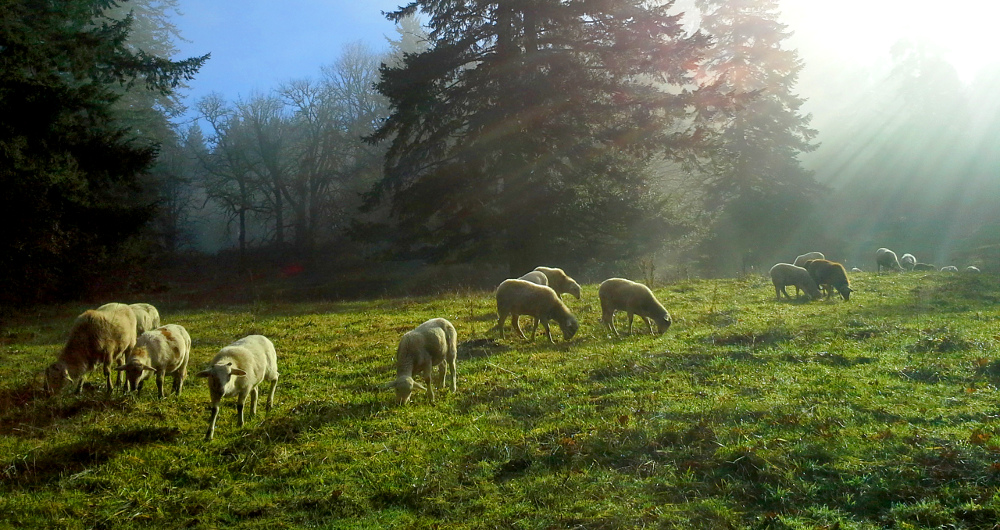
Pastured Sheep
Here in the Willamette Valley of Oregon, our mild winters allow us to graze year-round.
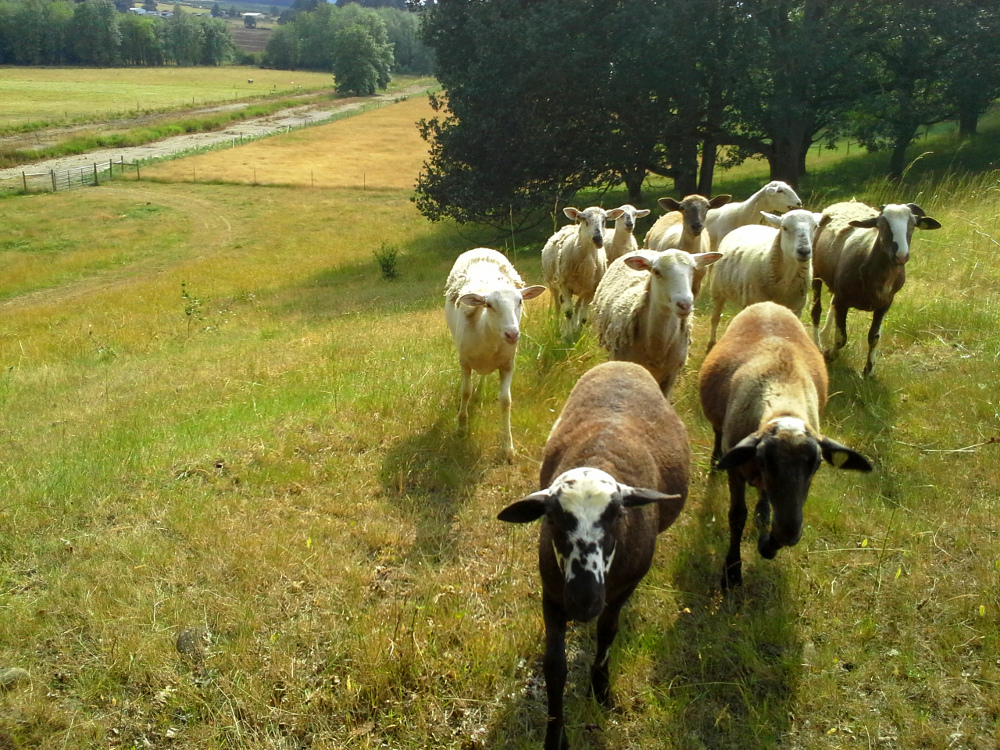
Pastured Sheep
We’re able to easily lead the sheep to new areas by training them to follow us around the pastures.

Pastured Sheep
We use portable electric net fencing to set up temporary paddocks around the pasture for the animals to graze. It’s our primary tool for managing grazing and it also protects the sheep from coyotes. Photo by Meaghin Kennedy

Pastured Sheep

Pastured Chickens
Most farms use a breed of white-feathered chicken known as Cornish Cross, which grow so fast that they can’t walk well. We believe it’s more humane to raise slow-growing breeds like these Red Rangers, who love to run and roam.

Pastured Chickens
We keep our baby chicks inside a warm shelter, known as a brooder, until they grow their feathers out and can be moved to the pastures.

Pastured Chickens
Instead of using outdoor pens, we raise our chickens fully free range in what we like to call a chicken village, which we regularly move new areas of pasture.

Pastured Pigs
Our pigs are raised outdoors on pasture year-round.

Pastured Pigs
When pigs are outdoors in a natural environment, they are as calm and friendly as can be.
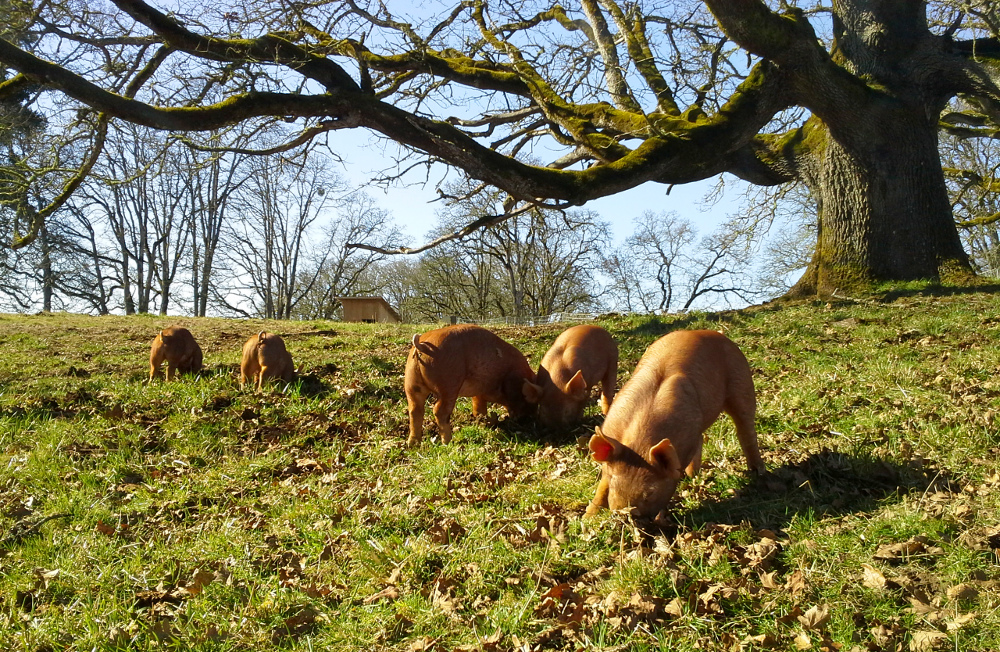
Pastured Pigs
They love exploring and rooting through the soil, eating roots, bugs and nuts as they go.

Pastured Pigs
We move the pigs to fresh pasture regularly, because, as most people don’t realize, they love to eat grass!

Pastured Pigs
The saying may be “happy as a pig in mud,” but pigs are actually much happier out of the muck. They love laying in the sun on clean grass.
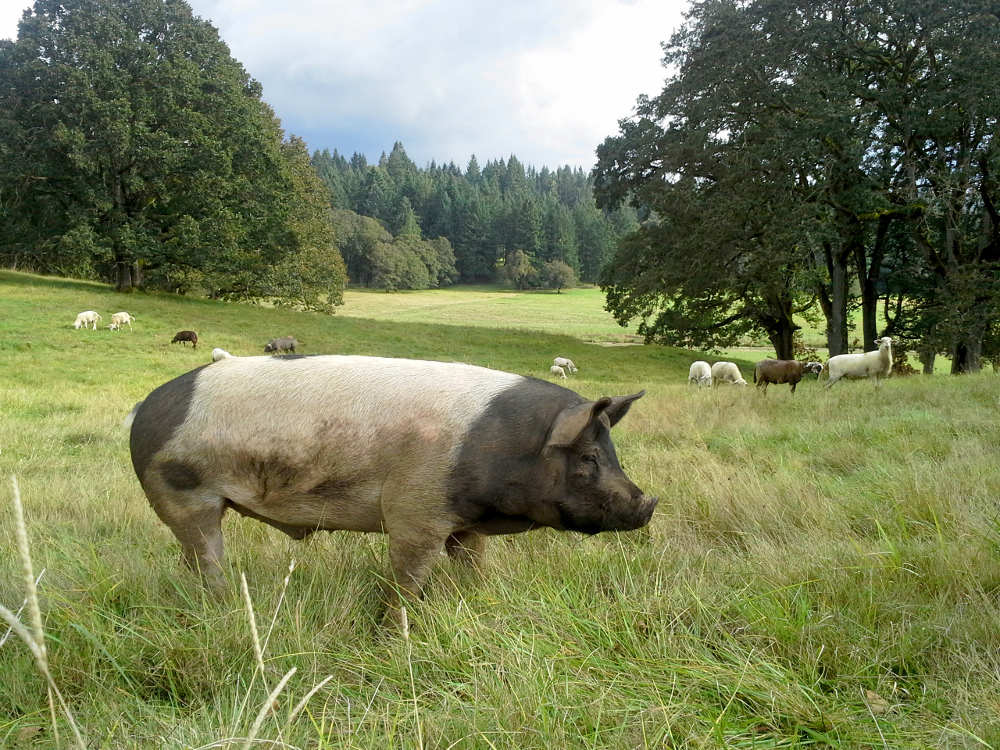
Pastured Pigs
















